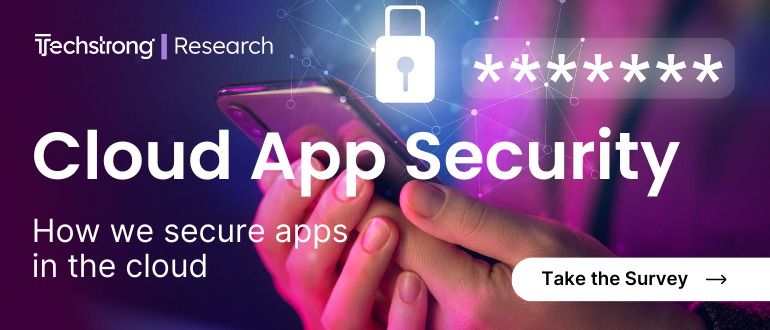
2024-6-20 02:54:0 Author: securityboulevard.com(查看原文) 阅读量:6 收藏
Email is the backbone of modern communication, both in personal and professional settings. Despite its widespread use and critical importance, traditional email systems suffer from significant security vulnerabilities at three key points: the user, the server that stores and processes emails, and the administrators who manage the system. These vulnerabilities can lead to data breaches, unauthorized access, and other cyber threats. In this blog, we’ll explore the fundamental issues with traditional email and how PreVeil addresses these challenges with its end-to-end encrypted email solution.
Fundamental Issues with Email
Systemic Server Vulnerabilities
In traditional email systems, emails are decrypted on the server, which creates a significant security vulnerability. Many traditional email services boast encryption in transit and at rest, creating a false sense of security among users. While these measures protect data as it travels and while it is stored, the data is nonetheless decrypted on the server when in use. This makes email servers a central point of attack.
If an attacker breaches the server, they gain access to decrypted emails from numerous users. High-profile examples include the breaches of the US Government’s email servers, Microsoft’s email servers, and Yahoo’s entire system being compromised in 2013, affecting all three billion user accounts. These incidents highlight the widespread misunderstanding that encryption in transit and at rest protects emails from server attacks. In reality, since the server sees decrypted emails, so can the attacker.
Administrator Vulnerabilities
In traditional email systems, email administrators hold significant privileges that make them a central point of attack. These administrators have broad access to user accounts, enabling them to read and manage emails across the entire user base. If an administrator’s account is compromised, the attacker gains access to the entire network, posing a substantial security risk. This vulnerability isn’t limited to small businesses or less sophisticated organizations; even giants like Microsoft and the US Government have faced breaches due to compromised admin accounts.
User Vulnerabilities
Phishing and Spoofing
Email is a prime vector for phishing attacks, where malicious actors deceive recipients into providing sensitive information or downloading malware. Spoofing, where an attacker forges the sender’s address, further exacerbates the issue, making it difficult for users to trust the authenticity of emails.
Weak Password-Based Access
One of the key vulnerabilities of existing email systems is the reliance on passwords, which are easily breached. Passwords can be guessed, stolen, or compromised through phishing attacks, making them an unreliable method of securing email accounts.
Compliance Challenges
Ensuring compliance with regulations such as HIPAA, CJIS, CMMC, and DFARS is challenging with traditional email systems. These regulations often require stringent data protection measures that many email services cannot adequately provide.
How PreVeil Addresses These Issues
True End-to-End Encryption
PreVeil utilizes robust end-to-end encryption, ensuring that emails and files are encrypted on the sender’s device and can only be decrypted by the intended recipient. This means that even if the data is intercepted or the server is breached, the content remains unreadable to unauthorized parties.
Phishing and Spoofing Protections
Phishing and spoofing are rampant in traditional email systems because essentially anyone can send a message to a user, who then has to make a judgment on its security or rely on enterprise software tools to do the same. Despite significant efforts, these tools often fail to reliably identify and block malicious emails, leaving organizations vulnerable to attacks.
PreVeil significantly mitigates these risks through its Trusted Community capability. This feature empowers organizations to restrict communication on secure matters, generally limiting it to internal users and trusted partners. By reducing the pool of potential senders, the likelihood of phishing and spam is greatly diminished, enhancing overall email security.
Moreover, by cryptographically verifying the identity of the sender, PreVeil ensures that emails come from legitimate sources. This robust verification process effectively prevents fraudulent messages from reaching users, reducing risk and enhancing trust in email communications.
Minimized Administrator Vulnerability
PreVeil eliminates the ability of a single administrator from reading or accessing emails. Enterprise admins can still accomplish these tasks but only after cryptographic approval from a predetermined set of approvers. This capability, called Approval Groups, is akin to how nuclear launch codes require the permission of multiple individuals. Approval Groups eliminate administrators as a central point of attack.
Password-less Key-Based Access
PreVeil ties users’ identities to cryptographic keys rather than passwords. These cryptographic keys are 78 digits long and unguessable, providing a much higher level of security than traditional passwords. This method is not only more secure but also enhances usability, as users do not have to remember complex passwords. Instead, access is granted through the possession of the cryptographic key, making login processes simpler and more secure.
Regulatory Compliance
PreVeil is designed with regulatory compliance in mind. Its encryption and security measures help organizations meet the stringent requirements of regulations such as HIPAA, CJIS, CMMC, and DFARS. By providing secure email and file sharing, PreVeil enables organizations to protect sensitive data and maintain compliance with ease.
Enterprise-Grade Features
The PreVeil system is designed for enterprise use, supporting essential capabilities such as cryptographic logging, retention, and e-discovery. These features ensure that enterprises can maintain detailed records of communications, comply with legal and regulatory requirements, and efficiently manage data retention and retrieval.
How PreVeil Email Works
Seamless O365 and Gmail Integration
PreVeil Email integrates with existing email systems by adding a second inbox with the same email address to Outlook, Gmail, or Apple Mail. This setup allows users to maintain their old email functionality while ensuring that all emails in the PreVeil inbox are secure and compliant. Enterprise users can continue using their familiar email systems for communicating with third parties and internally on non-sensitive matters. Meanwhile, all important communications occur over a highly secure but easy-to-use system provided by PreVeil. This means you can continue using your preferred email service and applications while benefiting from PreVeil’s advanced security features.
User-Friendly Experience
PreVeil’s integration ensures that users do not need to switch to a new platform or learn a new system. Instead, they can access their PreVeil-secured emails through the familiar interfaces of their current email applications. This makes the transition to a more secure email system smooth and effortless.
Access Anywhere
PreVeil can be accessed from any device, whether you are using a computer, smartphone, or tablet. This flexibility ensures that your secure communications are always within reach, regardless of the device you are using.
Enhanced Security Measures
By integrating with popular email applications, PreVeil adds an additional layer of security to your existing email workflows. This includes protecting your emails with end-to-end encryption, verifying the identity of senders and recipients, and safeguarding your data from phishing and spoofing attacks.
Conclusion
The fundamental issues with traditional email systems pose significant security and compliance challenges. PreVeil addresses these challenges with its cutting-edge encryption technology, decentralized architecture, and advanced security features. By adopting PreVeil, organizations can protect their communications, reduce the risk of data breaches, and ensure compliance with regulatory requirements, ultimately fostering a more secure and trustworthy email environment.
PreVeil’s approach to email security not only addresses the critical vulnerabilities of traditional systems but also sets a new standard for secure communication. Whether you are an individual user or part of an organization, PreVeil offers a robust solution to safeguard your emails and sensitive information.
The post The Fundamental Issues with Email and How PreVeil Addresses Them appeared first on PreVeil.
*** This is a Security Bloggers Network syndicated blog from Blog Archive - PreVeil authored by Telmo Silva. Read the original post at: https://www.preveil.com/blog/fundamental-issues-with-email-and-how-preveil-addresses-them/
如有侵权请联系:admin#unsafe.sh

